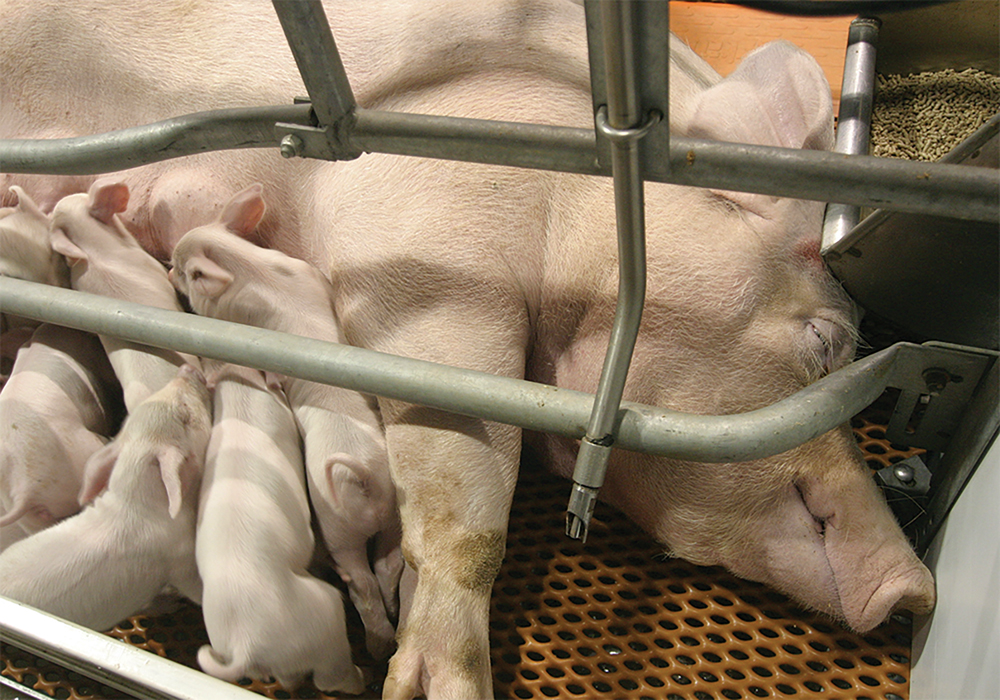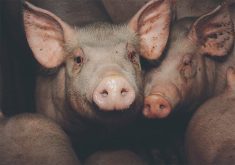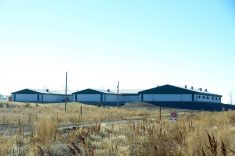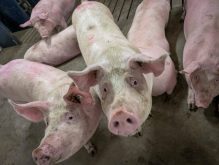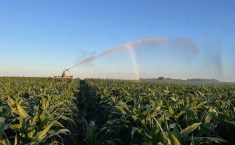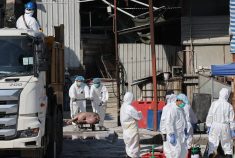A leader in Alberta’s pork industry is concerned about the precedent California’s Proposition 12 may set in agricultural trade between Canada and the U.S.
Prop 12, which became law Jan. 1, stipulates that sows supplying the state’s consumers must be grouped in housing that provides a minimum of 24 square feet per sow.
For Darcy Fitzgerald, executive director of Alberta Pork, there’s another issue at play: the potential weakening of the Canada-United States-Mexico trade agreement by making California a regulatory focal point.
Read Also
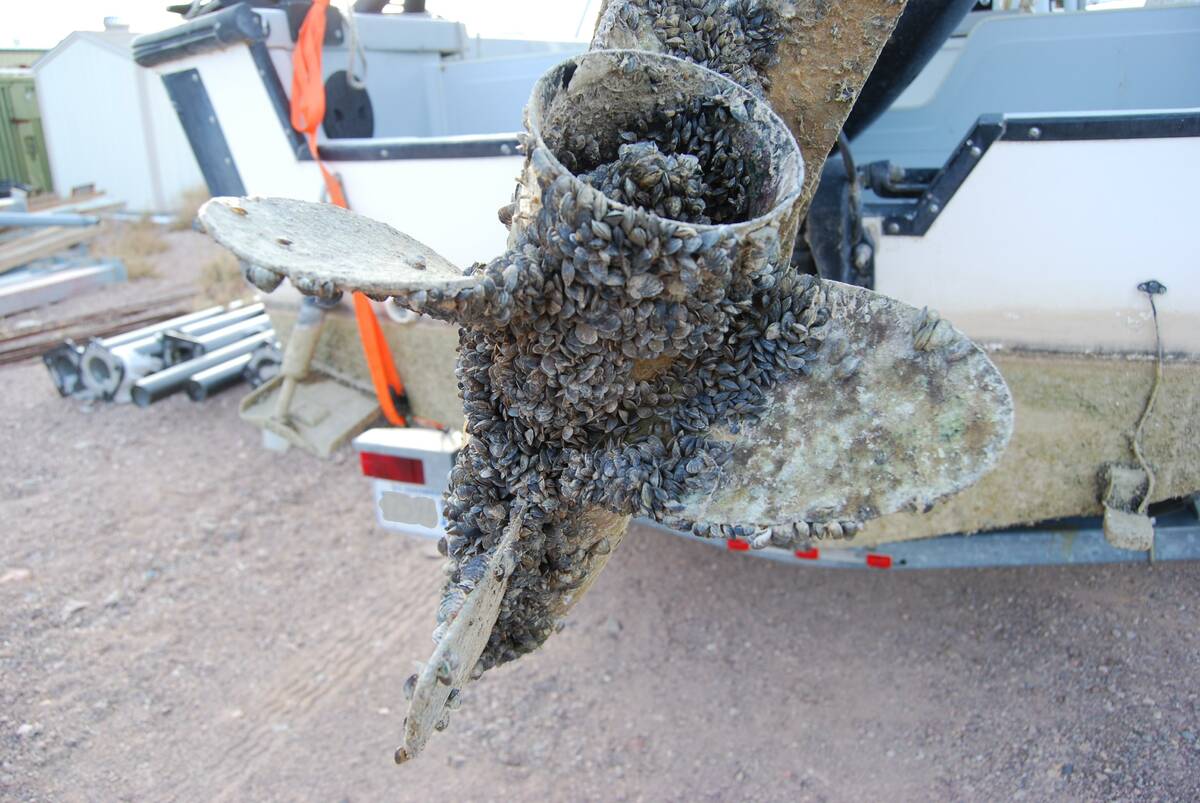
Invasive species council lending a helping hand to Alberta agricultural producers
Alberta Invasive Species Council unveils the huge economic effect of keeping invasive species unchecked to agricultural production in the province.
“(Right now) we’re dealing country to country,” he said. “If we have to start doing state and province to state and province, suddenly it’s not really going to be a free trade agreement, because there could now be all these barriers to entering a country.
“We don’t know; we may have to negotiate with 50 states.”
Prop 12 is a California ballot initiative passed in 2018, under which meat and eggs cannot be sold in California unless they come from animals raised in compliance with the state’s welfare regulations.
For pork, the law forbids the sale of whole pork for human food in the state if it’s the product of a breeding pig or immediate offspring that was confined during the production cycle.
That means each breeding sow requires at least 24 square feet and enough space to turn around and extend limbs. The law extends to pork imported into the state.
According to a policy brief released in November by Pam Lewison, director for the Washington Policy Center Initiative on Agriculture, egg and veal producers quickly fell in line with Prop 12.
However, pork producers, 99 per cent of whom live outside California, challenged it. They took the battle to the U.S. Supreme Court, which ultimately upheld Prop 12.
According to Lewison, the cost of retrofitting penning to comply with Prop 12 will be about US$3,500 per sow.
“For an average hog farm of 1,000 pigs, that represents a cost of $3.5 million,” Lewison wrote.
Between weaners and market pigs, Alberta producers export about 450,000 animals to the U.S. every year, said Fitzgerald. Canadian producers exported nearly 6.7 million hogs to the U.S. in 2022, including millions of weanlings.
Prop 12 will affect Canadian hog producers who sell their product either directly into California or to other links in the supply chain that have earmarked hogs or pork for that state.
As more U.S. processors and hog facilities comply with Prop 12, more pressure will be exerted on Canadian producers to abide by the state’s law, said Fitzgerald.
“If you’re a producer, you’re selling to a processor, and that processor may then sell into retail in California. Everybody’s going to double-check to make sure everybody’s doing the right thing.”
And then there’s the question of fines and other penalties, which Fitzgerald said are still unclear — at least in terms of how they apply to Canadian producers.
According to the Prop 12 text, “Depending on the specific violation of these requirements, a person could be found guilty of a misdemeanor or felony, either of which is punishable by a fine, imprisonment or both.”
Fitzgerald also worries that other states will adopt California’s restrictions or create similar or more restrictive policies.
The space requirements seem arbitrary, he added.
“Where does it stop? Yeah, it’s 24 square feet. Was that scientifically proven that that’s what you need? Is the next amendment going to be 26 (square feet) and then somebody else makes it 30 or 40?
“That’s a big undertaking to change your barn again. The worrying issue is that every state could have something different,” he said.
Retrofits are expensive.
“I’m sure it’ll be more expensive in Manitoba and Saskatchewan and then it’ll be immensely more expensive in Alberta just because everything costs more here to make those changes and retrofit things,” said Fitzgerald.
He also takes issue with a measure passed by a majority of people with no connection to agriculture.
“When you throw in something like Prop 12, it’s just a voter decision without (voters) really understanding what’s going on. It just throws a real wrench into agriculture, which has enough hurdles already.”
The law comes at a challenging time for the pork industry, in which hog farms had a projected average net cash income of $330,000 in 2023, down 28 per cent from 2022.
According to the Lewison’s policy brief, it may force producers out of the industry, increase consolidation and raise costs for pork at the meat counter.
“Given the downturn in net income, the stark choice facing many small- to medium-sized farm owners may be to sell to larger farms,” wrote Lewison.
“Consolidation in the meat production industry has long been a source of concern for producers, consumers, and even lawmakers. Certainly, pork will become more expensive as both supply constricts and the actual cost of compliance is revealed.”
In a June 2023 interview, Manitoba Pork Council general manager Cam Dahl expressed many of the same points as Fitzgerald, including frustration over lack of clarity on how Prop 12 will affect Canadian producers.
“We don’t negotiate separate trade agreements with 50 states. We need to be able to have a North American market that’s integrated, allows for the free flow of product and isn’t different in every different state,” said Dahl.
In a more recent discussion with Glacier FarmMedia, he noted the effect had been working its way through the business for months.
Those regulations were initially slated to come into effect on July 1, 2023, but in June 2023, a California judge extended the enforcement date to Jan. 1, 2024, for meat that was already in the supply chain.
“The impact isn’t just starting today; we have seen that impact for some time,” said Dahl.
When pressed for specifics, he pointed to signals such as price trends for piglets, a major market for Manitoba. The province exports millions of piglets to the U.S. every year.
“I don’t have empirical evidence to back this up, but in looking at things like the prices for isoweans going into the U.S., it is my perception that yes, it is already having an impact,” Dahl said.
He is also concerned that Prop 12 will fragment the North American marketplace.
“That’s something that’s going to hurt farmers and consumers alike. Farmers are going to see a lower return, and consumers are going to see higher prices.
“So, that’s a lose-lose situation. We have signed a trade agreement with the United States of America; it isn’t with individual states. To have different sanitary and phytosanitary conditions across different states is just something that’s not in the interests of anybody on either side of the border.”
The Canadian Pork Council said it sees Prop 12 and similar laws as akin to non-tariff trade barriers and has pressed the Canadian government to take up the issue with the U.S.
In late September, the Canadian government told Glacier FarmMedia it was analyzing the situation and “considering the U.S. obligations under the World Trade Organization (WTO) and Canada-U.S.-Mexico Agreement (CUSMA).”
– With files from Geralyn Wichers and Don Norman.


